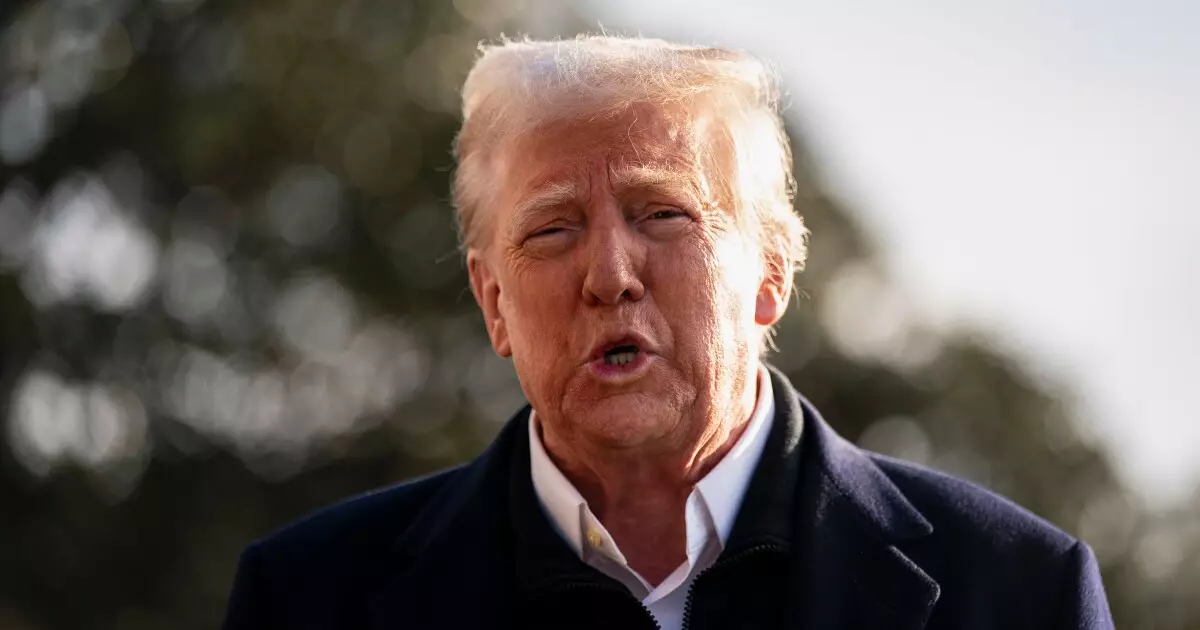The political landscape surrounding federal funding has recently been complicated by a memo from the Office of Management and Budget (OMB), suggesting an abrupt pause in the disbursement of federal grants and loans. This two-page document, issued on a Monday night, sparked immediate waves of concern among local governments and organizations dependent on federal assistance. Stakeholders including the National League of Cities and the American Association of State Highway and Transportation Officials were quick to express the bewilderment they felt, unsure of how such a freeze might impact their critical operations. The nuances and implications of this memo call for a closer examination of not only its immediate effects but also its broader ramifications on governance and the regulatory landscape.
As the dust began to settle on the initial outcry, White House officials stepped in to clarify that the freeze would specifically target grants and loans that conflicted with President Donald Trump’s executive orders related to crucial policy areas such as clean energy and immigration. Press Secretary Karoline Leavitt emphasized that not all federal assistance was on hold, reiterating that essential programs like Medicaid and federal student loans would continue as planned. Nevertheless, this “temporary pause” raised eyebrows among many observers. The mixed messages only fueled speculation regarding the administration’s true intentions and raised the specter of an echo of previous chaotic initiatives from earlier in Trump’s presidency.
The memo prompted the OMB to request federal agencies to provide information on their planned spending obligations, unveiling a meticulous review of federal financial assistance slated to last until March 15 of the current year. This review process appears to signal a potentially drastic shift in federal funding priorities, igniting fears among non-profits and state agencies that rely heavily on federal dollars. The OMB’s inquiry into funding sources tied to divisive issues, including climate and diversity, highlights an overarching strategy to realign federal assistance with the administration’s ideological agenda.
Political analysts, such as Philip Rocco from Marquette University, suggest that the memo’s chaotic execution is reminiscent of early Trump administration policies, which often faced backlash for their abrupt and unclear guidelines. The unconventional approach taken by the current administration, particularly regarding discretionary funding, raises fundamental questions about the balance of power and the appropriate process for modifying federal allocations. Under the Impoundment Control Act of 1974, the mechanisms for a president to halt previously appropriated funds are strictly regulated, presenting a stark contrast to what many perceive as the starkly politicized execution of the recent memo.
At the crux of these developments is the looming reality that such moves could lead to unprecedented legal challenges. The National Council of Nonprofits and several Democratic states quickly mobilized to file lawsuits aimed at halting the freeze. This swift legal response reveals not only the high-stakes environment surrounding federal funding but also hints at a deeper political rift that could further complicate the funding landscape in the coming weeks and months.
The monetary implications of the memo cannot be overstated. Data from The Pew Charitable Trusts indicates that federal grants represented a staggering $1 trillion in revenue for states in the fiscal year 2022, a critical financial lifeline accounting for over one-third of overall state revenue. As lawmakers wrestle with the essential services funded by these federal programs—healthcare, public education, infrastructure—one cannot overlook the potential fallout from a disruption in these vital financial streams. Stakeholders and officials voiced concerns that the temporary freeze could lead to detrimental consequences for cities and towns already facing economic hurdles.
In an email to members, CDFA President Toby Rittner articulated the fears echoed among various sectors reliant on federal funding: “The pause of federal funding for economic development programs and projects should be a major concern for cities, counties, non-profits, schools, development authorities, states, and any organization relying on federal funding as a source of support.” Such sentiments underscore a growing anxiety that stakeholders will be left unmoored amid inconstant federal support mechanisms.
As federal agencies grapple with the nuances of the OMB’s memo, an air of uncertainty lingers over the future of federal funding and the efficacy of governance under a contentious administration. The implications of this decision extend beyond simple bureaucratic delays, highlighting a broader struggle over the direction of federal policies. As litigation ensues and stakeholders bristle against a system marked by turbulence and miscommunication, it remains imperative for governing bodies to ensure that funding processes are not only transparent but equitable to safeguard the welfare of the communities relying on federal assistance. The coming weeks will be crucial in determining how this temporary pause will reshape the federal funding landscape and influence the relationships between the administration and state or local governments moving forward.

